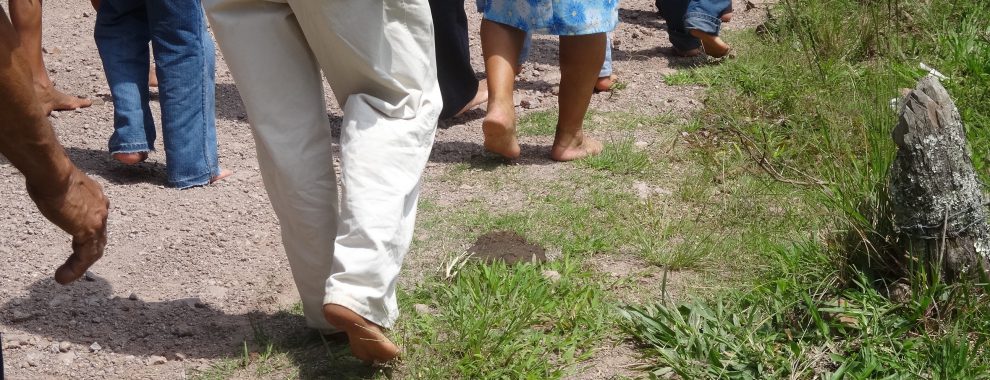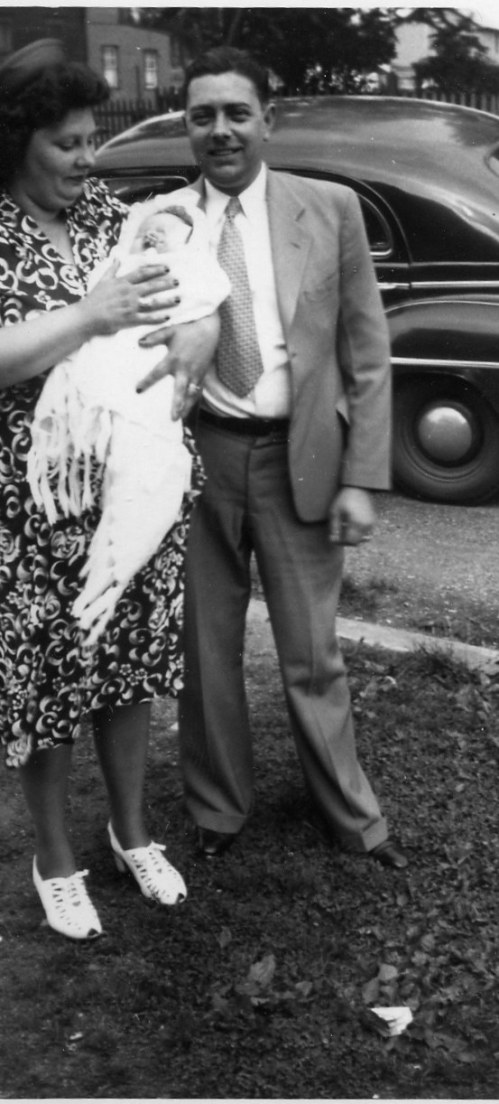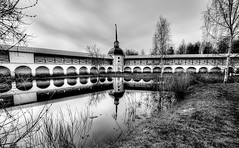Corpus Christi Procession meditations for the Dulce Nombre Parish 2017
We stopped with the Eucharist at five altars where these themes, reflecting the recent pastoral letter of Bishop Darwin Andino, were used as the basis for our prayer and meditation.

1. Deepening our encounter with God through the Word of God.
2 Timothy 3: 15-16
Pope Francis, Evangelii Gaudium, 174:
All evangelization is based on that word, listened to, meditated upon, lived, celebrated and witnessed to. The sacred Scriptures are the very source of evangelization. Consequently, we need to be constantly trained in hearing the word. The Church does not evangelize unless she constantly lets herself be evangelized. It is indispensable that the word of God “be ever more fully at the heart of every ecclesial activity”. God’s word, listened to and celebrated, above all in the Eucharist, nourishes and inwardly strengthens Christians, enabling them to offer an authentic witness to the Gospel in daily life. We have long since moved beyond that old contraposition between word and sacrament. The preaching of the word, living and effective, prepares for the reception of the sacrament, and in the sacrament that word attains its maximum efficacy.
2. Living the sacraments as encounters with God.
1 Corinthians 11: 23-26
Pope Saint John Paul II, Ecclesia in America, 29
Christian spirituality is nourished above all by a constant sacramental life, since the Sacraments are the root and endless source of God’s grace which believers need to sustain them on their earthly pilgrimage. The sacramental life needs to be complemented by the values of popular piety, values which will be enriched in turn by sacramental practice and saved from falling into the danger of routine. It should also be noted that this spirituality is not opposed to the social responsibilities of the Christian life. On the contrary, in following the path of prayer, believers become more conscious of the Gospel’s demands and of their duties towards others. Through prayer, they are strengthened with the grace they need to persevere in doing good.
Pope Francis, Evangelii Gaudium, 47
The Church is called to be the house of the Father, with doors always wide open. One concrete sign of such openness is that our church doors should always be open, so that if someone, moved by the Spirit, comes there looking for God, he or she will not find a closed door. There are other doors that should not be closed either. Everyone can share in some way in the life of the Church; everyone can be part of the community, nor should the doors of the sacraments be closed for simply any reason. This is especially true of the sacrament which is itself “the door”: baptism. The Eucharist, although it is the fullness of sacramental life, is not a prize for the perfect but a powerful medicine and nourishment for the weak. These convictions have pastoral consequences that we are called to consider with prudence and boldness. Frequently, we act as arbiters of grace rather than its facilitators. But the Church is not a tollhouse; it is the house of the Father, where there is a place for everyone, with all their problems.
3. Strengthening the family as “domestic church,’ gathered around the Table of the Eucharist.
Joshua 24: 14-15
Pope Francis, Amoris Laetitia, 317:
Family prayer is a special way of expressing and strengthening this paschal faith.376 A few minutes can be found each day to come together before the living God, to tell him our worries, to ask for the needs of our family, to pray for someone experiencing difficulty, to ask for help in showing love, to give thanks for life and for its blessings, and to ask Our Lady to protect us beneath her maternal mantle. With a few simple words, this moment of prayer can do immense good for our families. The various expressions of popular piety are a treasure of spirituality for many families. The family’s communal journey of prayer culminates by sharing together in the Eucharist, especially in the context of the Sunday rest. Jesus knocks on the door of families, to share with them the Eucharistic supper…. The Eucharist is the sacrament of the new covenant, where Christ’s redemptive work is carried out. The close bond between married life and the Eucharist thus becomes all the more clear. For the food of the Eucharist offers the spouses the strength and incentive needed to live the marriage covenant each day as a “domestic church”.
4. Caring for our “common Home” where God reveals his glory.
Psalm 19: 2-7
Pope Francis, Laudato Si’, 236:
It is in the Eucharist that all that has been created finds its greatest exaltation. Grace, which tends to manifest itself tangibly, found unsurpassable expression when God himself became man and gave himself as food for his creatures. The Lord, in the culmination of the mystery of the Incarnation, chose to reach our intimate of the Incarnation, chose to reach our intimate depths through a fragment of matter. He comes not from above, but from within, he comes that we might find him in this world of ours. In the Eucharist, fullness is already achieved; it is the living center of the universe, the overflowing core of love and of inexhaustible life. Joined to the incarnate Son, present in the Eucharist, the whole cosmos gives thanks to God.… The Eucharist joins heaven and earth; it embraces and penetrates all creation. The world which came forth from God’s hands returns to him in blessed and undivided adoration…. Thus, the Eucharist is also a source of light and motivation for our concerns for the environment, directing us to be stewards of all creation.
5. Living the Eucharist in lives of charity and justice.
Acts of the Apostles 4: 32-35
A reading for Pope Francis’ Message on the World Day of the Poor 2017:
If we truly wish to encounter Christ, we have to touch his body in the suffering bodies of the poor, as a response to the sacramental communion bestowed in the Eucharist. The Body of Christ, broken in the sacred liturgy, can be seen, through charity and sharing, in the faces and persons of the most vulnerable of our brothers and sisters. Saint John Chrysostom’s admonition remains ever timely: “If you want to honor the body of Christ, do not scorn it when it is naked; do not honor the Eucharistic Christ with silk vestments, and then, leaving the church, neglect the other Christ suffering from cold and nakedness”.













